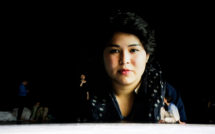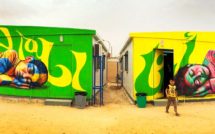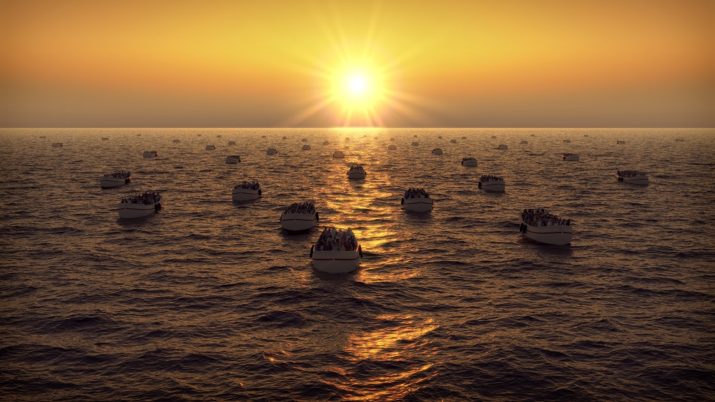
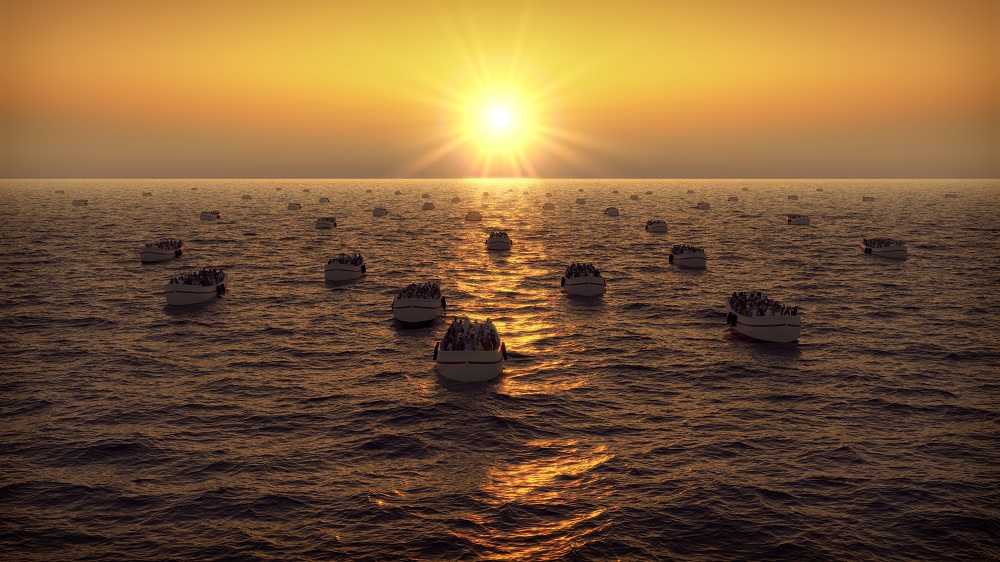
This is part of our special feature on Sustainability & Innovation.
Activists and scholars have taken to calling the summer and fall of 2015 “the Long Summer of Migration.” It was this period when the on-going movement of forced migrants from Syria and elsewhere to Europe caught the attention of news media, government officials, and the general public, in part because of a marked increase in numbers of people arriving to seek shelter and in part because of German Chancellor Angela Merkel’s decision to suspend the infamous Dublin II Accords and allow newcomers to claim asylum status in Germany rather than at their first port of entry in the EU. More than a million forced migrants came to Europe in 2015 alone, with approximately 500,000 people filing asylum applications in Germany in that year. While numbers in the present are now declining, 2016 saw approximately 700,000 asylum applications in the Bundesrepublik, approximately 400,000 of which were approved.[1]
Even before this time, Bard College Berlin, a university with dual German and US accreditation, proposed creating the Program in International Education and Social Change (PIE-SC) to provide full scholarships and support structures, allowing students from regions of crisis to enter our globally diverse body of bachelor degree students.[2] The Long Summer gave us impetus to push this plan forward and to focus our efforts on fundraising for scholarships for Syrian students. Many of the Syrian newcomers to Germany were college-aged and saw their education interrupted by the brutal civil war. Along with the violent scattering of their families, friends, and possessions, the war interrupted of their dreams of a different and better future. It seemed only appropriate that a liberal arts college with a radically international population, a commitment to global justice, and a profile in educational innovation would find ways to open its doors to Syrian students. The university administration and faculty saw this not only as a mode of solidarity with victims of a crisis that demanded response, but also as a way to open and enhance our academic community. Generous financial support by individuals including gallerist Roland Augustine ultimately enabled us to admit our first PIE-SC cohort of four Syrian students, along with one Greek student. These students arrived on campus last August and completed their first year of BA study just this week. Additional donors such as artist Tracey Emin and Nina Baroness von Maltzahn are supporting nine (and counting!) new students from Syria, Iraq, and Afghanistan who are scheduled to join our new freshman class in August 2017. Looking even further ahead: a recent anonymous gift of 1 million USD serves as bedrock funding for an additional sixteen students.
The following “field notes” give a glimpse into the College’s engagement in education and forced migration since 2015, when our PIE-SC plans crystallized, by profiling one pilot project created with the current and future cohorts of students with a forced migration background in mind. This was an experiment in opening up our classrooms. We knew that hosting students from Syria and other crisis regions would necessitate changes in our classrooms and more widely, if we wanted to avoid replicating the “assimilation” model so roundly critiqued by migrant rights activists. In practice this has meant different things at different times, from educating ourselves as a faculty to validating unconventional forms of knowledge and experimenting with course meeting structures and assignments. Not wanting to confine education to the relatively small number of students for whom we were able to raise full scholarships, the College also sought ways to open up learning opportunities to wider migrant communities. All of this, especially given Bard College Berlin’s limited resources as a small, private liberal arts university, required many forms of collaboration. My notes provide a brief description of this collaborative work interspersed (in italics) with more direct and personal impressions by Marion Detjen, who anchored the project to which I now turn.
From Research and Activism to the Classroom to the Conference Hall
Being a migration historian, specialized on inner German flight movements after Second World War and exile from National Socialist Germany, the arrival of one Million forced migrants in 2015 made a deep impact on both my academic research and my activities as citizen. Like many of my friends, I became engaged in the pro refugee movement, and manifold questions of how to relate with and include the perspectives of the newly arrived in my work as a historian arose. Is not our present understanding of what the condition of refugeedom entails very much formed by the articulations and ideas of refugees of the past, like Hannah Arendt? Should not the refugees of the present be able to articulate and develop their experiences and ideas, to have us learn and to fuel our understanding of refugeedom now and in the future? Due to many countries of origin of the refugees of our days having been dictatorships or war-ridden for decades, and other reasons, the academic situation today is completely different from the 1940s and 1950s, when Hannah Arendt and her fellow-exiles from Europe were able to boost intellectual and academic life in the USA. Our responsibility cannot exhaust itself in giving positions to scholars at risk. We have to make a strong effort of inclusion in the field of higher education, not only in MINT-subjects, but also and especially in humanities and social sciences, where the barriers of language and of disciplinary traditions are so high. —Marion Detjen
Detjen is a historian at the research institute the Center for Contemporary History in Potsdam, and a guiding force in the grassroots collective Wir Machen Das. She also has a passion for teaching and bringing history to undergraduates, formerly at Humboldt University, and now at Bard College Berlin. Well aware of the college-aged refugees trying to find a way into the German university system, she proposed offering a course on German history for both Bard College Berlin and non-enrolled refugee students. What resulted was a year-long class where students from places as diverse as Syria, Iraq, Israel, Colombia, Senegal, Serbia, the Netherlands, South Africa, and the US grappled in multiple forms with the phenomenon of migration in Germany since World War II.
I quickly discovered that it was not enough just to incorporate the newly arrived into my class. The class itself had to take the opportunity to change. Most of what we teach – our narratives and concepts and methodologies – have a specific background, have grown in certain national, cultural and disciplinary traditions. While I don’t think that one can scorn this inescapable situation as such, it requires constant reflection and discussion in the classroom – discussion not in a confrontational sense, but in the sense of an exchange of experience, of what we mean when we use certain words and how we deal with them. Our first session was spent almost exclusively on tackling the term“refugee” a term that on the one hand promises protection and a status, and on the other hand comes along with discrimination and victimization and was therefore rejected by some of the students. Other terms followed, “integration” being the most problematic one. Language itself became an issue, not only for those who have to express themselves in a foreign tongue – like myself when I teach in English – but also for the native speakers who have to accept the use of it to be a matter of constant negotiation and effort. And finally, the conventions and formats of academic achievement had to be adapted. If you insist on only essay writing, as necessary as it is, so much of what is known beyond or outside will not find an expression and will get lost. The consequence being that, after having established a sound historical basis and academically researched individual projects in the first term, we enhanced these projects with non-verbal language, with visual or sonic or performative modes of expression.
In the fall, students made their way through a rigorous historical syllabus tackling the question of Germany having turned – or not having turned – into a country of immigration during distinct stages of its post war history. The syllabus culminated in the students designing experimental research projects through which to trace the meaning of Germany as a country of migration from their own personal and collective perspectives. In the spring semester, a number of students elected to continue on with the class in order to shape their research projects into artistic interventions. Detjen built on connections from Wir machen das to organize weekend workshops—hosted by the gallery spaces and cultural centers BOX Freiraum and Center for Culture and Urbanism (ZK/U) — where students worked with professional artists in the Foreign Local Artist Exchange (FLAX) to reconceptualize and realize their projects. The class also worked closely with a group of Masters students in the Architecture program at the Academy of Fine Arts, Vienna, who designed a sustainable and reusable structure for exhibiting the works.
The exhibition — building a common structure to show the individual projects to the public — was essential to the class’ success. The significance of the exhibition is certainly not being an end product, a definite result, as exhibitions normally are seen. As one of the students put it, in a moment of distress when we struggled with the materiality of it: “We must keep in mind the telos of our efforts.” The telos, the purpose of our efforts surpasses the exhibition as much as it is embodied by it: it lies in the encouragement and development of the students themselves, in all their individualities as a collective, under the conditions of a migrant and post-migrant society. The exhibition gives expression and cohesion to these individualities of the students, and from our side as teachers it is a promise that we will take care.
The work of the class culminated when students presented their projects in the form of an exhibition and presentations to a wide audience at the international conference “The Impossible Order: Europe, Power, and the Search for a New Migration Regime.”[3] This event was curated by Detjen and Prof. Frank Wolff, held at the site of the Berlin Wall Visitor Center, and organized by the Center for Contemporary History with support from Bard College Berlin, the Federal Agency for Civic Education, the Berlin Wall Foundation and other institutions. During one memorable session of the conference, student voices took over the Visitor Center to describe how they came to terms with their own histories and their perspectives on memory and community in Berlin today. The pieces they presented included sound art that records the soundscape of public transportation on the M1 tram from the northern suburb where Bard College is situated to the heavily immigrant neighborhood of Neukölln, a “migration Haggadah” that responds to questions of universality and partiality of forced migration experience, a thought provoking, ironical internet blog called “Integration Guru,” and a pair of films by a Syrian student and a Jewish student from Colombia thinking about the Holocaust memorial, and others.
One important piece in the exhibition is a living plant that carries the name “Fredrich” and belongs to a student who wrote her essay about the migrant history of the liberal arts ideal and its potential in a post-migrant society. Fredrich needs favorable living conditions to grow and to blossom — as do the students and as does the liberal arts ideal. Faced with societal tensions and political conflicts, universities have to work as safe spaces, as protected spaces, taking the obligation to protect far beyond trigger-warnings or “political correctness.” If we take the challenge of including refugee students and students from areas of crisis serious, we need to create environments where the political powers and interests have no access, and where students can try out ideas, even erroneous ideas, and subversive ideas, without having to fear. Only in a protected space can collaborative explorations like the one between my Syrian and my Jewish and Israeli students on the German Holocaust memorial culture and questions of universalizing memory happen. But these protected spaces are not easily carved out, they experience constant limitations and interferences. They demand us to become more flexible and experimental in our practices, prepared to work at the interstices.
The Virtues of Collaboration
The open and expanding classroom described here underscores the importance of working with different partners to approach the challenge of education in the context of forced migration and displacement—in the attempt to forge an educational paradigm up to the demands and the opportunities that refugee students place on us as higher education institutions. Such a classroom would absolutely not have been possible without many different modes of collaboration. The first bridge was between a liberal arts university and a research institute, who then worked together with a grassroots civic organization, artists who could provide guidance to students as they moved from academic to artistic research, cultural centers where this shift could happen, an architecture studio that created a structure for bringing the student works into public display, and the participation of governmental and non-governmental entities which funded the “Impossible Order” conference and allowed it and the exhibition to be held in a highly symbolic public site.
This principle of collaboration is one that underpins many of Bard College Berlin’s other initiatives in the field of education and migration, as we pursue our aims of deepening knowledge of migration and mobility and further opening our classrooms and events to new communities and publics. In order to create a sustainable curricular structure to support and anchor individual courses like that created by Detjen, in the form of a sequence of courses and study opportunities that will help our students grasp migration not as a “crisis” but as a long-standing and globally-connected process constitutive of our present and future, Bard College Berlin helped develop the new Liberal Arts Consortium on Forced Migration, Displacement, and Education (CFMDE). This consortium, funded in its planning phase by the Mellon Foundation and spearheaded by Prof. Maria Höhn at Vassar College, is comprised of Vassar College, Bard College, Bard College Berlin, Sarah Lawrence College and Bennington College. Its goal is to share knowledge and resources in order to build long-term capacity and curricular structures in migration studies at each campus and to create joint opportunities for learning and practical work in migrant communities. The CFMDE serves as a crucial laboratory for exploring what and how to teach; our work with Kiron Open Higher Education provides an opportunity for sharing this knowledge about forced migration and education in the liberal arts context more widely. If Detjen was able to open her class to refugee students based in Berlin, the Institute for Writing and Thinking at Bard College’s new “Writing to Learn” project, funded by the Open Society Foundation and carried out in cooperation with Kiron, is developing “blended” courses that will be available digitally to refugee students around the world. These courses, offered in English and Arabic and to be staged at Bard College Berlin and Al-Quds Bard Honors College, will help refugee students either applying to university or in the beginning of their university studies acquire the skills needed for success. Kiron brings to this project the skills to translate Bard’s liberal arts teaching experience into a digital environment. They also help put refugee students onto a pathway to a BA degree through a number of educational partnerships that link participants in on-line classes with brick and mortar universities including with Bard College Berlin. Indeed, one of the first students in our PIE-SC program came through Kiron.
Working with other partners and organizations has its challenges, including the time spent aligning institutional goals and cultures and the need to cede some control over projects, to live with uncertainty about how things might work out. Yet our experience at Bard College Berlin has been that the virtues of collaboration far outweigh these challenges. Working with partners in refugee education has led to truly inspiring opportunities to enrich our teaching practices, to extend access to education and to engage in public discussions with wide and diverse audience.
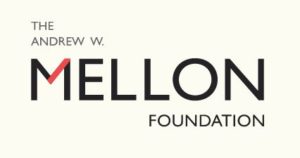
Kerry Bystrom is Associate Dean of the College at Bard College Berlin, and one of the people responsible for the university’s refugee education initiatives. Her research areas are human rights, humanitarianism, literature and cultural studies, and she is the author and editor of various books, edited collections and articles including the collection Humanitarianism and Responsibility, a special issue of The Journal of Human Rights (co-edited with Glenn Mitoma).
Marion Detjen is a researcher at the Center for Contemporary History in Potsdam.
Photo: Refugees on boats floating on the sea, sunset | Shutterstock
References:
[1] See http://www.dw.com/en/sharp-drop-in-migrant-arrivals-in-germany/a-37087543; http://www.bamf.de/SharedDocs/Anlagen/DE/Downloads/Infothek/Statistik/Asyl/aktuelle-zahlen-zu-asyl-dezember-2016.pdf;jsessionid=6AE18AF8FF97F6A686E073384DEC78BC.2_cid294?__blob=publicationFile
[2] More information about the program can be found here: http://www.berlin.bard.edu/admissions/finances/scholarships/program-for-international-education-and-social-change/
This program was based on the longstanding Program in International Education housed at Bard College in the USA, which brought students from Eastern Europe, Southern Africa and elsewhere to Bard College in New York state for study: http://www.bard.edu/iile/pie/
[3] A full schedule and description can be found here.
Published on June 6, 2017.

